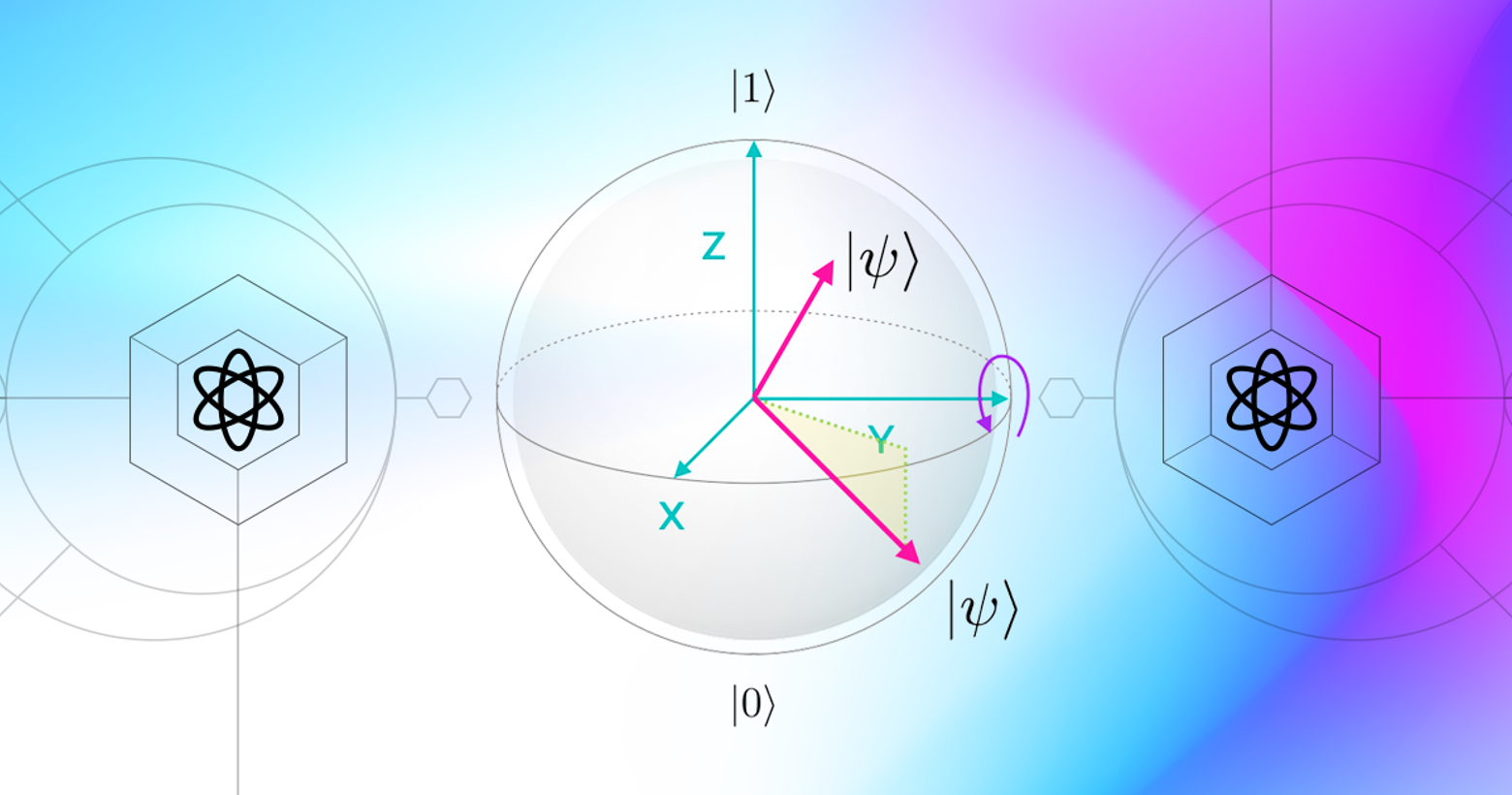Anticipation is high for the potential of quantum computing. But before you write this off as another one of those articles full of fluff, buzzwords, and absolutely no substance, we’d like to refer you to paragraph five, where we explain what Strangeworks is and how it’s making quantum computing accessible to everyone. Until then, let’s turn this fluff into fact.
The last few years have seen a flowering of important advances in the realm of quantum computing, from different international teams claiming Quantum Supremacy, to the largest entangled state achieved in a Quantum Computer. This has allowed the technology to move into new industries like finance, transportation, energy, and chemistry. Furthermore, quantum computing could revolutionize drug discovery, novel materials for clean energy, machine learning, and more.
So, how does it work?
The universe is made of quantum information. While classical information is made of bits (0s and 1s), quantum information is made of qubits. Qubits go beyond bits by allowing different quantum superpositions of 0s and 1s. Quantum computers process these superpositions to carry out calculations beyond what classical computers can do. Quantum computers are, fundamentally, a new class of computers that can use more information in the fabric of reality than anything before.
Quantum computers will be exponentially more efficient at tackling problems that were previously considered intractable, like determining the exact energy of a molecule to find a candidate for a new drug. Molecules are quantum mechanical in nature. Classical computers aren’t very good at modelling them in enough detail, even with vast resources. However, a quantum computer is naturally suited to simulate them, making calculations better than any classical computer. This, along with other applications in areas of machine learning, logistics, and optimization, are why quantum computers will become key tools in many industries.
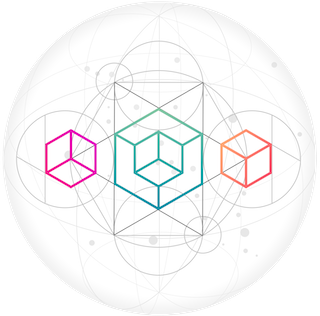
Since its launch at SXSW in 2018, Strangeworks has worked to humanize access to quantum computing by helping thousands of users learn and leverage this technology through the Strangeworks Quantum Computing ecosystem. Today, Strangeworks is announcing several initiatives that will continue to broaden this community.
The quantum industry needs more collaboration, experimentation, and shared discoveries to help build the quantum workforce of tomorrow, today. By bringing together a network of providers with a hardware-agnostic, software-inclusive, collaborative development environment, Strangeworks is working to provide everything needed for governments, universities, and enterprises to start building their quantum solutions today.
Introducing the Strangeworks ecosystem: quantum computing exploration, creation, and collaboration—for all.
If you’ve been hanging out in the Quantum Computing Stack Exchange, you know that there are a wealth of technologies you can utilize in this field. As part of our recent announcement, we’re introducing Strangeworks Quantum Computing, a free quantum that enables researchers, developers, and enthusiasts to quickly learn, develop, and manipulate real quantum code. This platform allows users to access free quantum simulators hosted as horizontally scalable microservices, directly access simulators hosted by quantum computer manufacturers, and even send code directly to several physical quantum computers.
With Strangeworks QC™, users can easily create, organize, and collaborate on quantum computing projects and access libraries of code, frameworks, and languages including: Amazon Braket SDK, Blueqat, Cirq, D-Wave Ocean, Forest, Jupyter Notebooks, Microsoft QDK (Q#), MyQLM, OpenQASM, ProjectQ, Python, Qiskit, Xanadu PennyLane, and Xanadu Strawberry Fields..
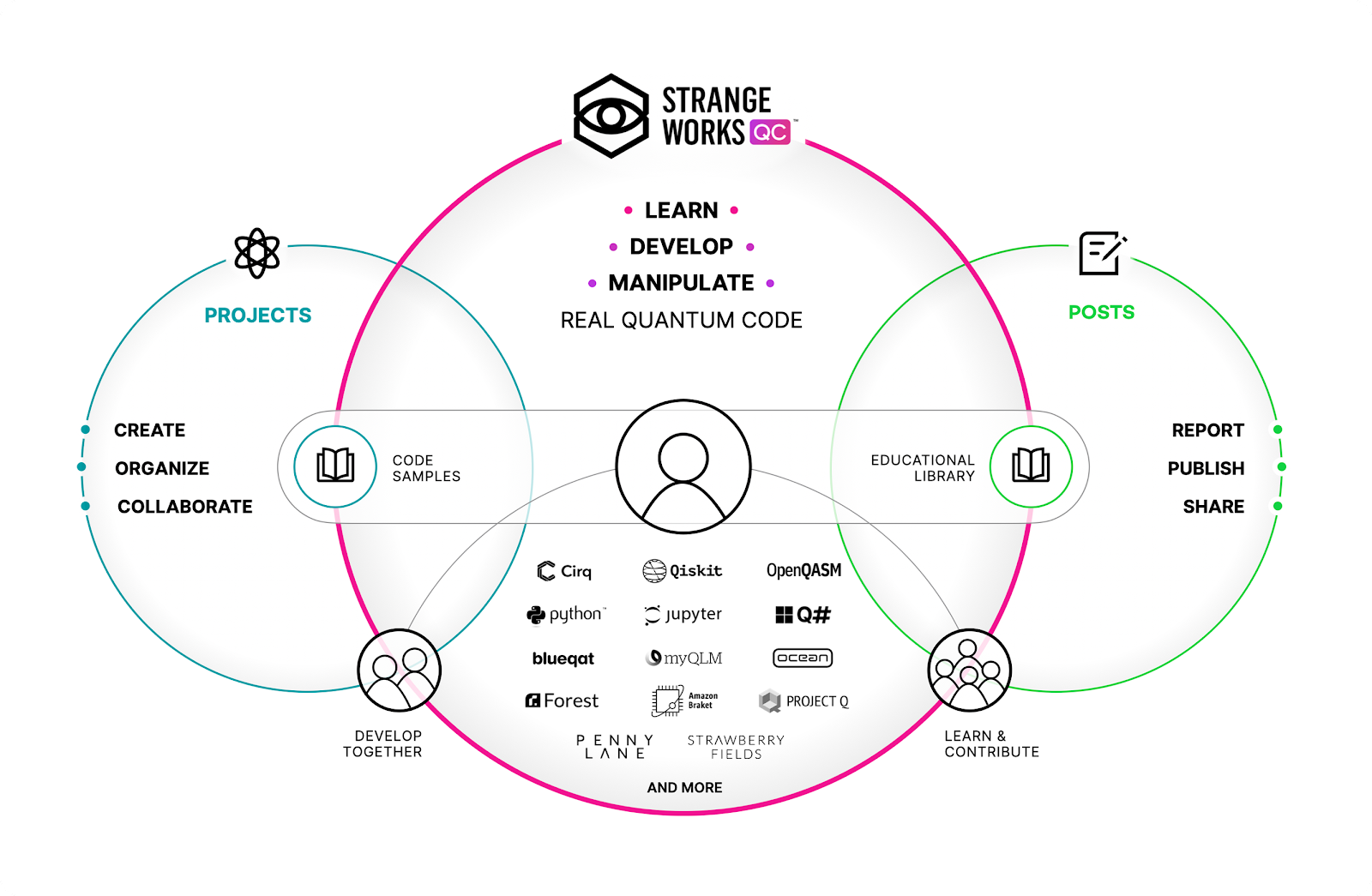
We’re also announcing the Strangeworks Quantum Syndicate, a collaboration of hardware, software, and education and cloud service providers including: 1Qbit, Algorithmiq, Amazon Braket, Atom Computing, Bleximo, Blueqat, D-Wave, Entropica Labs, Hitachi, Honeywell, Horizon Quantum Computing, IBM, IonQ, Microsoft, PlanQK, Qureca, Rigetti, Riverlane, Stack Overflow, Unitary Fund, and Xanadu.
Strangeworks QS™ provides a neutral location to integrate fast moving quantum technologies, allowing us to forge relationships that ensure our customers and community always have the latest quantum technologies at their disposal.
What does all that mean for the average coder visiting Stack Overflow? By collaborating with members of Strangeworks Quantum Syndicate, Strangeworks lowers the barrier to entry for you to explore the emerging quantum landscape. Over the past year of beta testing, Strangeworks (in collaboration with members from the Strangeworks Quantum Syndicate) hosted over 20 educational webinars and three hackathons using the Strangeworks QC™ solution.
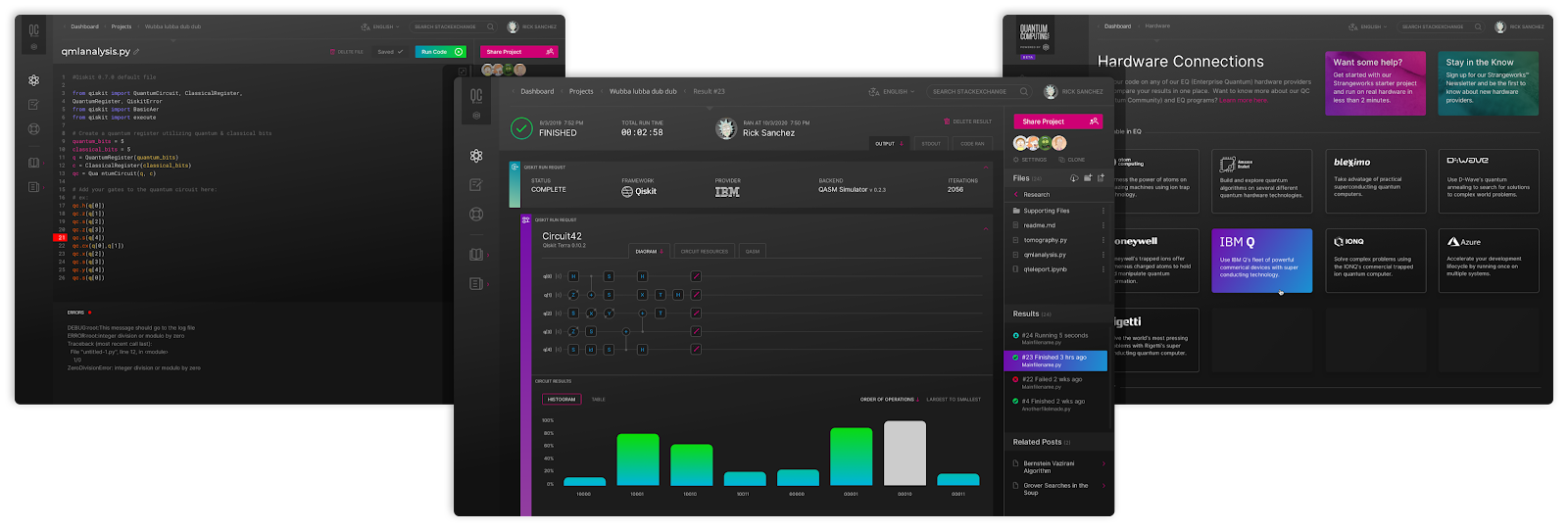
Based on our enterprise grade solution Strangeworks EQ™, Strangeworks QC™ provides a free community-supported development environment preloaded with all of the popular quantum software packages and languages. You can jump right in with one of many complete sample projects from our community library or start a fresh project using our per-framework file templates as examples.
The Strangeworks ecosystem supports quantum languages and frameworks from the highest levels of abstraction in machine learning, to those close to designing quantum circuits in hardware. To make it easy for users to try their hand at both, just about every popular quantum software framework and language comes pre-installed. The code loads immediately in a familiar editor (based on VSCode), and all of the configuration and versioning is taken care of for you. By clicking Run, the platform not only displays the typical console output but automatically creates beautiful renders of circuit diagrams, histograms, and other simulation results for you to explore.
Our Community Library is loaded with educational posts that will take you from playing with one qubit and an introduction of entanglement to more complicated experiments like finding the ground state of a lithium cation. Filled with examples from all the available frameworks, it is your one stop shop to get started on programming quantum computers. Whether you are a beginner or an expert, we have a sample project for you.
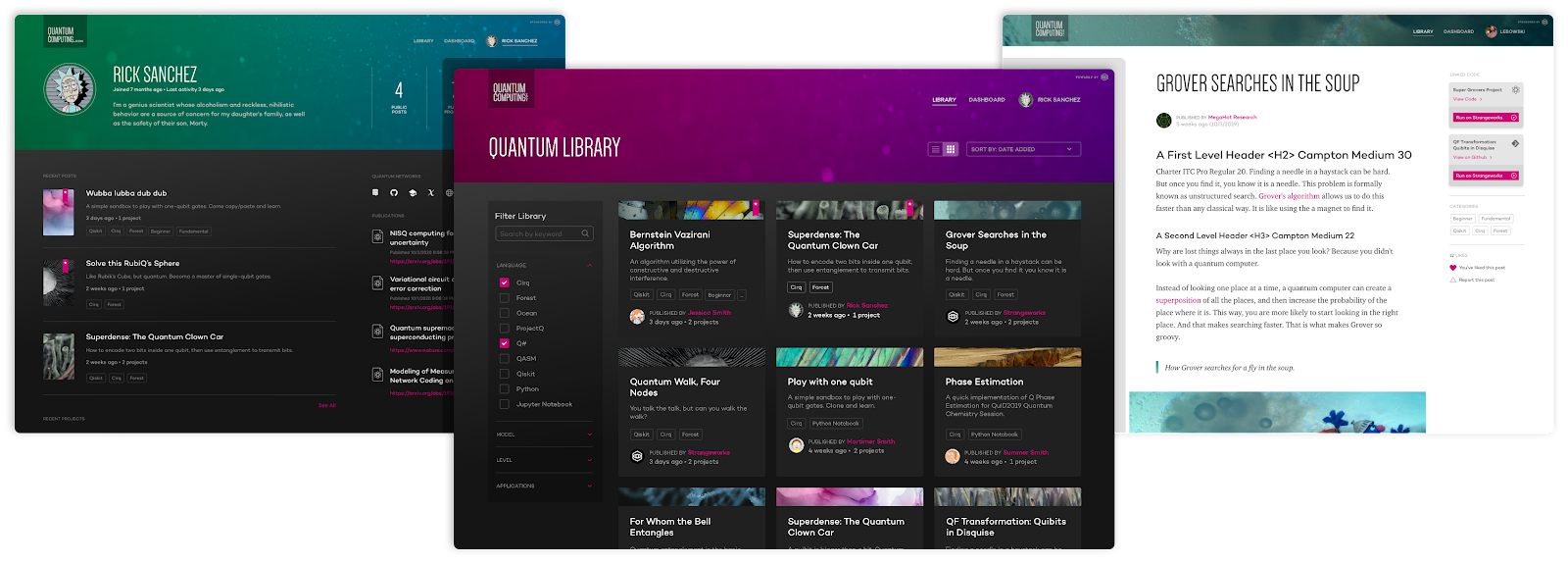
This library is not just intended to be a repository of our experiments. Our community of users can post their own projects and experiments to the library with just a few simple clicks. In addition to user community projects, we also work with our Quantum Syndicate to collate examples from around the globe.
Unsure of where to start? Check out some of our Strangeworks QS members like QPlayLearn and Qureca, who can help you get started on the physics principles. Then, use our example projects to help you put the theory into practice.
If you want to go beyond solo work and bring quantum computing to your organization, the Strangeworks EQ™ platform is our enterprise solution made to be dependable, secure, and adaptable to future advancements. Strangeworks Enterprise Quantum includes granular security, IP protection, quantum machine access, resource aggregation, custom integrations, private deployments, team and project management, dedicated support, online training, and more.
Like anything worthwhile, quantum development isn't particularly easy. But with a robust Community Library, a collaborative and helpful Quantum Computing Stack Exchange community, and all of the tools you need to start developing on a single platform, you're on the path towards quantum enlightenment. 💪🧠=💰
To join the Strangeworks Quantum Syndicate or to deploy Strangeworks in your enterprise visit: http://strangeworks.com.
Strangeworks QC™ is available worldwide today, for free, at http://quantumcomputing.com.
The Stack Overflow blog is committed to publishing interesting articles by developers, for developers. From time to time that means working with companies that are also clients of Stack Overflow’s through our advertising, talent, or teams business. When we publish work from clients, we’ll identify it as Partner Content with tags and by including this disclaimer.
